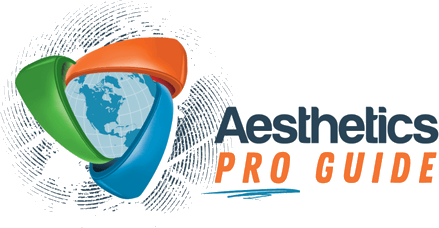
Opening a medspa is an exciting and profitable venture. However, it can be a daunting task, as there are specific license requirements that vary from state to state. Before starting a med spa, it is crucial to research the laws and regulations that govern the medical spa industry in your state. For more in-depth information, it is always a good idea to consult an expert, such as a CPA or attorney, for guidance. In this blog post, we'll cover a few requirements for opening and operating a med spa throughout the U.S. See below for a Breakdown of State-by-State Regulations.
There are slight variations from state to state. Some states have restrictions on who can invest in or profit from a med spa, while others do not. For instance, in Alaska, non-physicians can have their own medical spa if they employ a medical director and other licensed doctors to perform the services. They can do this through what are called management services organizations (MSOs), which provide the administrative services that keep the business side of a medical spa running smoothly. They can also have a share of the profits if they are considered an owner of the practice. On the contrary, Maryland, Tennessee, and many other states only allow physicians to own medical entities.
In most of the United States, only licensed medical professionals are allowed to perform cosmetic procedures such as Botox injections, laser treatments, and dermal fillers. Every state has its own definition of who qualifies as a medical professional. In states such as Connecticut, Delaware, and Massachusetts, medical professionals must conduct advanced training specific to the procedure to perform these treatments. There are a few states, for instance, Minnesota, that are not restrictive in terms of the requirements needed to perform procedures. If they have been delegated or supervised by a licensed physician, any PA, RN, NP, or electrologist can provide treatment.
There are a few states, such as Kentucky, where procedures like Botox injectables are taxed at a 6% sales tax. However, in general, most states do not require sales tax to be added. Some states require extra taxes and permits for medical facilities like med spas. Some states tax only medical devices, while others tax non-invasive cosmetic procedures, including hair removal, facials, etc. Know before opening a med spa in your state if you are eligible to tax for your services and how much you will need to tax.
In some states like Idaho and Texas, only physicians can legally own medical equipment used in medical procedures. In contrast, quite a few states have no such requirement. If the medical equipment complies with federal and state regulations and licensing, anyone can legally own it.
Several states, New Hampshire, North Dakota, and West Virginia to name a few, all allow laser treatment and injectables to be commissioned. Some states have specific regulations and licensing requirements for commissioning. Montana is the only state with no regulations for commissioning these procedures.
At a federal level, it is illegal for non-licensed individuals to share profits from the med spa. Federal laws such as the Anti-Kickback Statute and physician self-referral law may not apply to most med spas due to the lack of federal healthcare program reimbursement, many states have similar laws that apply regardless of the payor, even extending to cash pay. States like Connecticut, Delaware, and Maine allow business owners to share profits with non-licensed individuals, so long as the compensation structure complies with applicable state laws to ensure compliance.
Click here for more information on regulations by state.
Click here for information regarding NP's licensing requirements.
Starting in 2024, numerous small business owners, including medical spas, will need to comply with a new annual federal reporting requirement. The Corporate Transparency Act (CTA) was enacted in 2021 to combat money laundering, tax fraud, and other financial crimes. Among its provisions is the obligation for businesses to disclose information on their beneficial owners to the Financial Crimes Enforcement Network (FinCEN), a division of the U.S. Department of the Treasury. This stipulation regarding reporting beneficial ownership information (BOI) will be enforceable from January 1, 2024. This video, helps to cover this new requirement.
For more information on this new regulation, click here.
Medical spas are classified as medical or healthcare practices, necessitating their compliance with the Occupational Safety and Health Administration (OSHA) standards. These guidelines ensure a safe working environment and the safety of practitioners and patients.
Medical spas are required to adhere to the regulations outlined by the Health Insurance Portability and Accountability Act of 1996 (HIPAA). This legislation ensures patient privacy and governs the electronic transmission and sharing of health information. For instance, when using patient photos on social media, strict compliance with HIPAA guidelines is necessary. Prior written consent from the patient must be obtained, and the med spa must take measures to safeguard their clients' identities. To maintain HIPAA compliance, consider utilizing professional EMR software such as AestheticsPro. This software offers secure and efficient HIPAA Cloud Compliance and EMR solutions tailored to the needs of the medical aesthetics industry.
In conclusion, opening and operating a med spa is a complicated and nuanced process that varies from state to state. The regulations discussed above are only a brief representation of the numerous requirements and rules one must follow to open a med spa. As a business owner, it is crucial to consult with legal professionals who can advise on Federal, State, and local laws, rules, and regulations, to avoid unnecessary fines, penalties, lawsuits, and license infractions. If you do your research and adhere to the regulations of your state, opening and operating a med spa can be a lucrative and fulfilling business venture.
As winter fades and spring emerges, it's the perfect time to refresh and rejuvenate your skin. Months of cold, dry air can leave skin feeling dull, dehydrated...
Running a successful medspa isn't just about delivering stunning transformations–it's about keeping things running smoothly behind the scenes. Imagine if...
Sustained success in the medspa industry requires more than just peak-season surges–it demands year-round strategies that drive consistent revenue...
As the seasons change, spring cleaning isn't just for your home–it's also the perfect time to refresh your medspa operations. A well-organized and efficient...
Looking and feeling your best shouldn't break the bank, and savvy spa owners know that offering cost-friendly treatments can attract budget-conscious clients while...
Hair loss is a common concern among men, affecting millions worldwide. Whether it's due to genetics, stress, or lifestyle factors, thinning hair can significantly...
Hair loss is a common concern among men, affecting millions worldwide. Whether it's due to genetics, stress, or lifestyle factors, thinning hair can significantly...


AestheticsPro - Bringing you 15 years of industry experience and
resources to guide your practice to success."